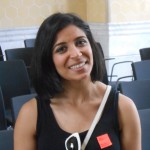 Having the fortune of being a healthy person so far, I have rarely needed to see my GP. Hence I already suspected my own experience as a patient would be different from that of many others who go to see their GP. I recently had an unexpected opportunity to compare my own and another person’s experience of consulting a doctor as part of a simulated GP surgery for medical students. I allowed myself to be drafted as a simulated patient, made quite giddy at the prospect of being able to harness my underutilised am-dram skills, as well as being told at 33, I could pass as a 25 year old. Flattery never fails. Nor cake for that matter.
Having the fortune of being a healthy person so far, I have rarely needed to see my GP. Hence I already suspected my own experience as a patient would be different from that of many others who go to see their GP. I recently had an unexpected opportunity to compare my own and another person’s experience of consulting a doctor as part of a simulated GP surgery for medical students. I allowed myself to be drafted as a simulated patient, made quite giddy at the prospect of being able to harness my underutilised am-dram skills, as well as being told at 33, I could pass as a 25 year old. Flattery never fails. Nor cake for that matter.
I was asked to portray a woman who was struggling with moderate anxiety, and her myriad associated concerns. I was given a script which allowed me to contextualise this person, give her a background and ultimately help me immerse myself in the role. As my primary purpose was to help students, I felt a sense of responsibility, to try and really get under the skin of this woman and provide them with the best learning experience I could. And in doing so, in trying to remove the power my medical knowledge provides me, my eyes were opened in a way they have not been before.
Every aspect of every consultation with four students resonated with me. How they walked, how they talked, how their eyes seemed to regard me, each facial expression, every word, every pause, every silence, how they placated or soothed me, how they frustrated me, right down to how they used their BNF and phone. I was a patient, an observer, a critic, whilst also wanting to point them in the right direction when I knew they were wandering off course. That day I was not a doctor, yet, in a matter of hours, it changed how I see and present myself as a doctor. I saw my own strengths and weaknesses as a medical practitioner reflected back at me, I saw how I could improve my own practice and interactions with my patients. So I took that learning and knowledge away with me and applied it. And I felt my surgeries had been transformed. The simple courtesies which I took for granted, which I thought perhaps I did not always need to employ, that in some way I could be excused because I was so busy, and surely the patient should understand. The value of a smile at the right time. The art of active listening rather than distracted listening, where turning my whole body away from my computer and toward my patient, instead of just my head, had such a positive response. The simple action I had otherwise considered of negligible importance until I had witnessed and critically appraised the same for myself.
This was such an invaluable experience, I may just go out and get that Equity card and venture into a world of method acting. But most startlingly, I realised we are not so different, my patient and I. There, but for the grace of God, go I….
Competing interests: I have read and understood the BMJ Group policy on declaration of interests and declare the following interests: employed by Keele University where I came across opportunity to take part in simulated surgery.
Anujeet Panesar is a GP and clinical teaching fellow at Keele University.
